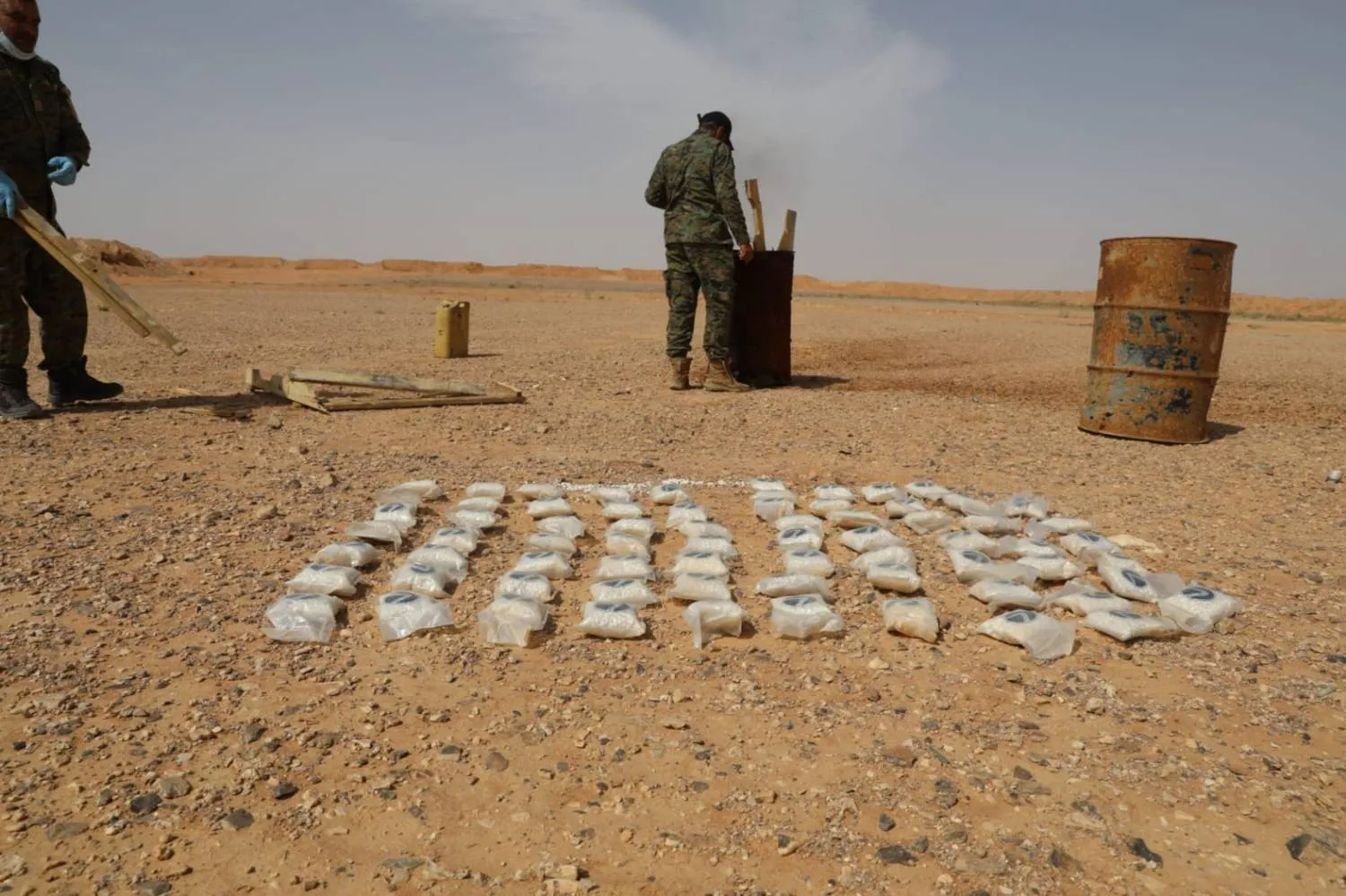The Syrian Observatory for Human Rights (SOHR) has said that security services arrested eight drug dealers in the Hamidiyah area in Damascus.
The whereabouts of the arrested remain unknown.
Large amounts of illicit drugs were found in the possession of the dealers who were tasked with distributing illicit drugs to residents in the region, especially young people, under the supervision of Lebanon’s Hezbollah, it said.
The Observatory added that this campaign comes as part of efforts by the Syrian regime to polish its image in front of the international community and portray its security service countering drug dealers in Syria.
This coincides with the considerable proliferation of the drug trade throughout areas controlled by regime forces and their proxy militias, where frequent disputes take place between the regime’s security services and drug dealers, according to SOHR.
On Nov. 19, SOHR reported that the regime-affiliated military intelligence branch arrested a drug dealer in Falytah in the western Qalamoun countryside, following a dispute over revenue-sharing of the drug business and thefts.
According to the Observatory, a prominent drug dealer working for regime forces was injured on Nov. 10, when unidentified gunmen opened fire at him in Beit Jinn town in the Damascus countryside.
A day earlier, a collaborator with the regime military intelligence was shot dead by unidentified gunmen in front of his house in Yabroud city.
Hailing from Bakha’ah village in Rif Dimashq, the man was a prominent drug dealer in the region.
Following the assassination, military intelligence and state security forces in the city were put on high alert, along with bringing military reinforcements to the Hajanah Battalion, while blocking the city entrances to comb the road connecting Ras Al-Ain and Bakha’ah towns.
The Jordanian army intercepted on Nov. 2 a drone coming from Syria, Jordan’s state news agency Petra reported.
The drone was carrying crystal meth, which was seized and transferred to the designated authorities, Petra said, citing a military official.
Since February, Jordan has successfully intercepted multiple drones coming from Syria and carrying illicit substances and weapons.









